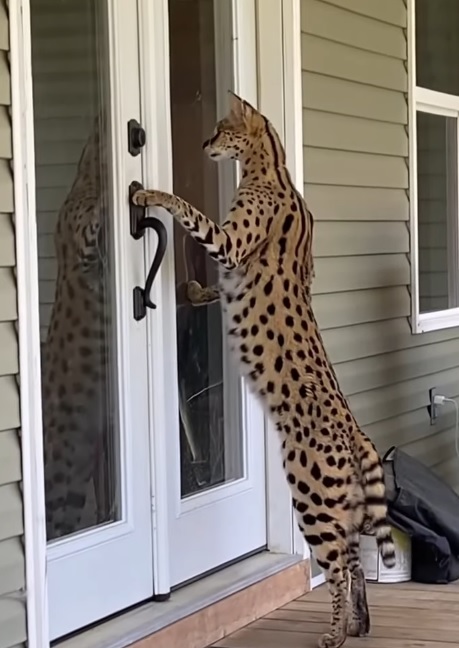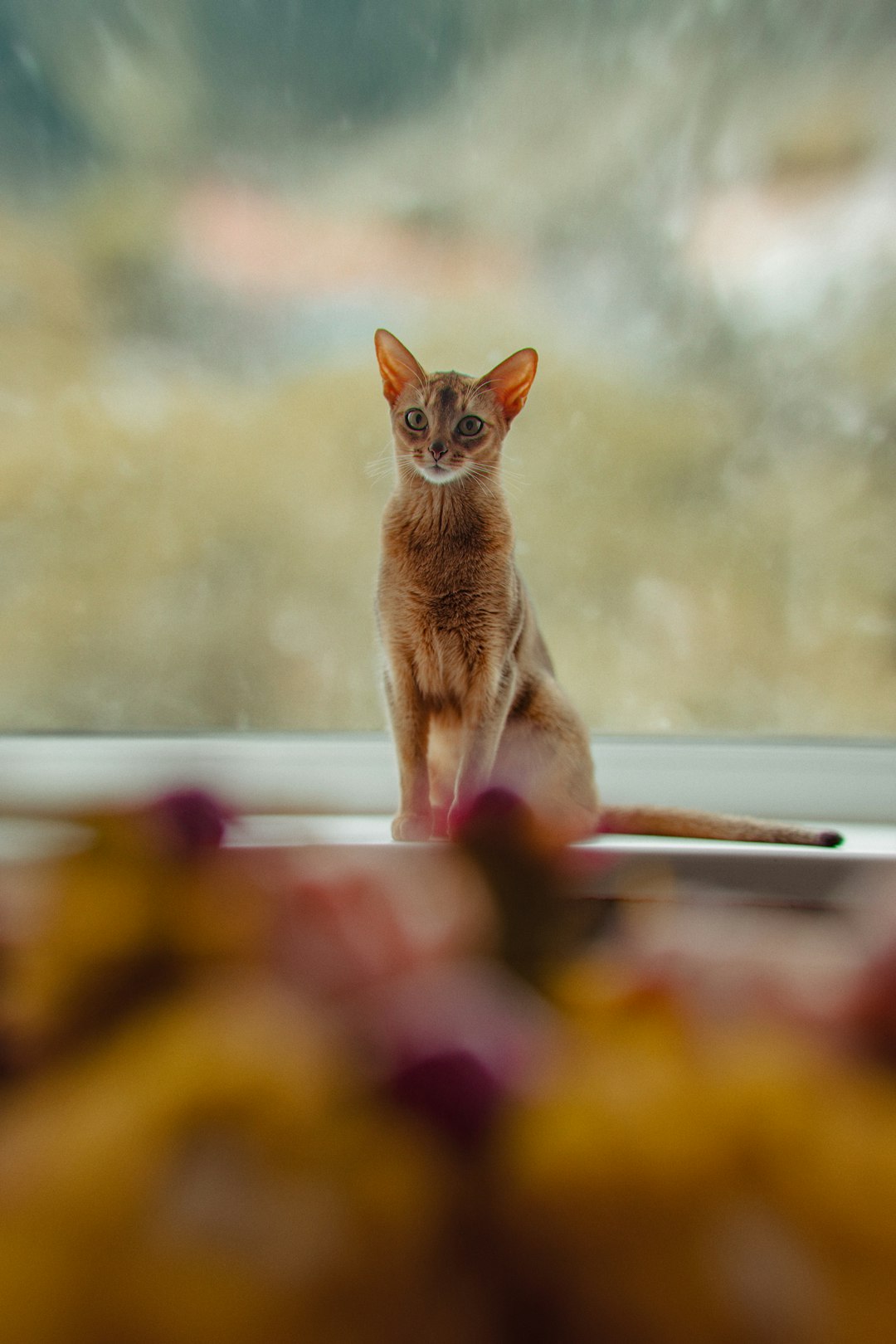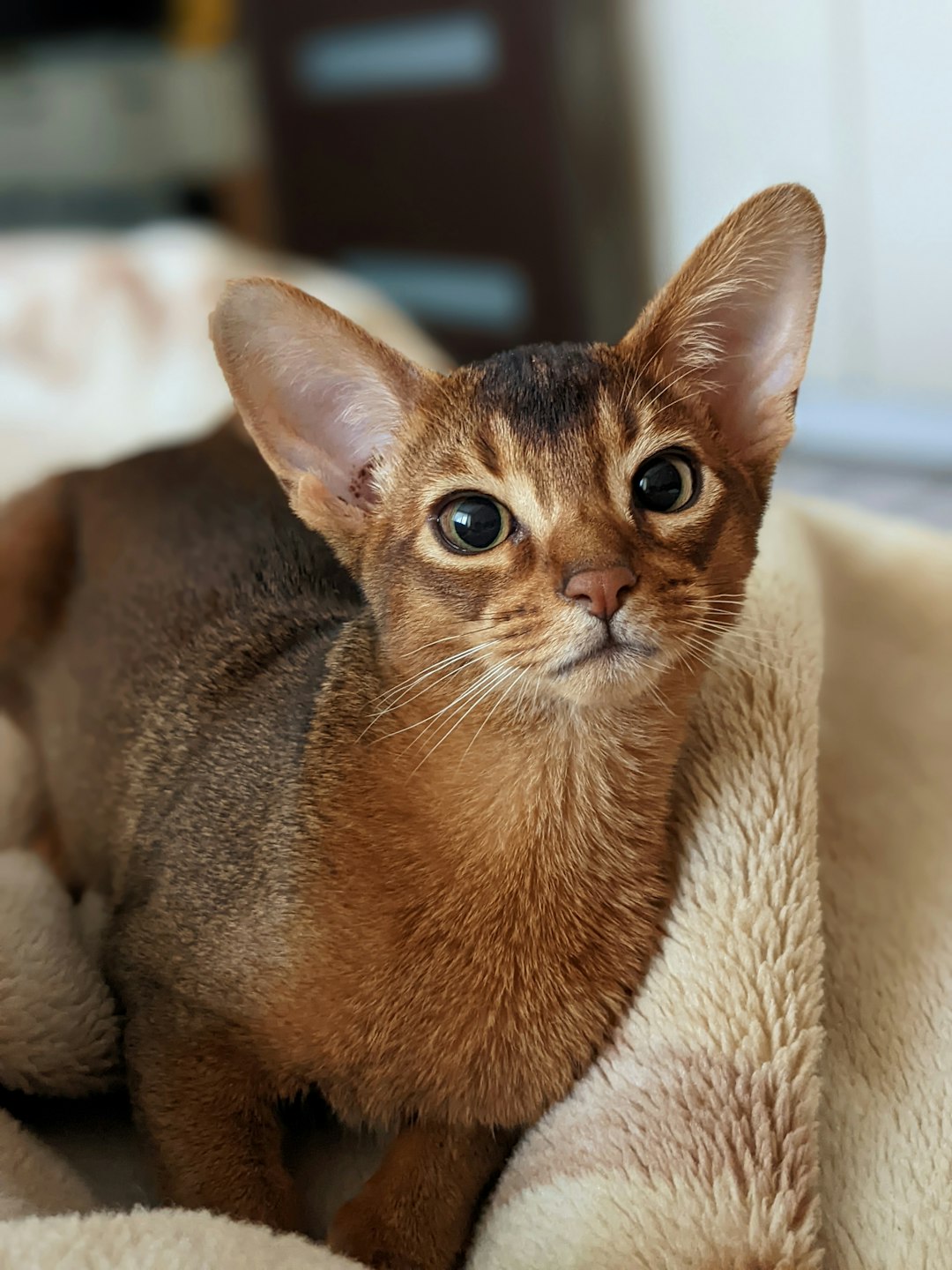The F1 Savannah Cat captivates cat lovers and exotic pet enthusiasts alike with its striking appearance and dynamic personality. This remarkable breed originates from a cross between a serval and a domestic cat, creating a unique blend of wild and domestic characteristics. As we explore the various aspects of the F1 Savannah Cat, from its history and physical traits to its care requirements and legality, you’ll gain a deeper appreciation for this stunning feline. Join us on this journey to uncover what makes the F1 Savannah Cat a truly extraordinary companion.
Origin and History of the F1 Savannah Cat
The F1 Savannah Cat is a fascinating hybrid breed that originated in the early 1980s, arising from a cross between a domestic cat and the serval, a wild African cat. This unique ancestry gives the F1 Savannah Cat its distinct appearance and a blend of wild and domestic traits.
Key points about its origin include:
- Breeding Initiatives: In 1986, breeder Judee Frank produced the first-ever F1 Savannah Cat, sparking interest in hybrid cats.
- Formal Recognition: The International Cat Association (TICA) began recognizing the breed in 2001, establishing the guidelines for breeding and categorization.
- Generational Classification: The "F1" designation indicates that the cat is the first generation of hybrids, which means it has a serval parent and a domestic cat parent.
Today’s F1 Savannah Cats showcase an exotic appearance with long legs, large ears, and unique coat patterns. Their heritage not only contributes to their beauty but also influences their vibrant personalities and energetic behavior. Understanding the origin of the F1 Savannah Cat provides essential insights for potential owners.
Physical Characteristics and Appearance
The F1 Savannah Cat is a stunning blend of wild and domestic traits, showcasing a unique appearance that captivates many cat enthusiasts. Here are the most notable physical characteristics:
- Size: F1 Savannah Cats are larger than most domestic cats, typically weighing between 12 to 25 pounds. Males tend to be larger than females.
- Build: They possess a long, lean body with strong musculature, reminiscent of their serval ancestors.
- Ears: Their large, upright ears are one of their defining features, often resembling the ears of a serval.
- Coat: The F1 Savannah Cat boasts a striking, spotted coat. The coloration usually includes shades of gold, silver, or smoke, marked with bold black spots.
- Eyes: The eyes are elongated and expressive, varying in color from green to gold, adding to their wild allure.
Overall, the F1 Savannah Cat presents a unique combination of elegance and wildness, making them a highly sought-after breed for those looking for an exotic pet.
Temperament and Behavior Traits
The F1 Savannah Cat boasts a unique blend of wild and domestic qualities, resulting in a captivating personality. Understanding their temperament is crucial for potential owners. Here are some key traits:
- Affectionate: F1 Savannah Cats are known for their loyalty and affectionate nature. They often form strong bonds with their families, seeking companionship and attention.
- Intelligent: These cats display remarkable intelligence, enabling them to learn tricks and use problem-solving skills effectively. Engaging their minds with interactive toys is essential.
- Active: With high energy levels, F1 Savannah Cats require regular exercise. They enjoy climbing, running, and playing, so providing a stimulating environment is vital.
| Trait | Description |
|---|---|
| Affectionate | Strong attachment to family members |
| Intelligent | Quick learners and problem solvers |
| Active | Requires regular exercise and stimulation |
In summary, the F1 Savannah Cat presents a delightful mix of playful energy and loving companionship. Their unique personality makes them a distinctive addition to any household, provided owners are ready for their energetic and affectionate demands.
Care and Maintenance of F1 Savannah Cats
Caring for an F1 Savannah Cat requires a blend of commitment, knowledge, and attention to their unique needs. Here are essential aspects to focus on for proper care and maintenance:
Space: F1 Savannah Cats thrive in spacious environments. Provide ample room for them to roam, jump, and explore.
Litter Box: Use a large litter box and keep it clean. These cats are particular about hygiene, and a clean litter box is essential.
Grooming: Regular grooming helps maintain their coat. Brush their fur once a week to reduce shedding and prevent matting.
Social Interaction: F1 Savannah Cats are highly social. Spend quality time playing and engaging with them to prevent boredom and encourage healthy behavior.
Enrichment: Provide interactive toys, climbing towers, and scratching posts. An enriched environment keeps their minds sharp and active.
Veterinary Care: Regular vet check-ups are crucial. Schedule annual health screenings and vaccinations to address any potential health issues early.
By following these care guidelines, you’ll ensure your F1 Savannah Cat leads a happy, healthy, and fulfilling life.
Dietary Needs and Nutrition Guidelines
Feeding your F1 Savannah Cat requires attention to their unique dietary needs, which reflect their wild ancestry. These cats thrive on high-protein diets that resemble what they would consume in nature. Consider the following guidelines to ensure your F1 Savannah Cat maintains optimal health:
- High-Quality Protein: Look for cat food with real meat as the first ingredient. Ingredients like chicken, turkey, or fish provide essential amino acids.
- Fat Content: Include healthy fats, such as fish oil, for energy and to promote a shiny coat.
- Carbohydrate Considerations: Minimize grains and fillers. Seek foods that focus on lean proteins and fibrous vegetables.
- Hydration: Always have fresh water available. Some F1 Savannah Cats prefer wet food, which can increase their moisture intake.
- Portion Control: Regular meals (2-3 times daily) help regulate their energy and prevent obesity.
Nutritional Requirements Summary:
| Nutrient | Recommended Source |
|---|---|
| Protein | Chicken, Turkey, Fish |
| Fats | Fish Oil |
| Carbohydrates | Green Vegetables |
By following these guidelines, you’ll ensure your F1 Savannah Cat receives a balanced diet for a happy and healthy life.
Health Considerations and Common Issues
The F1 Savannah Cat is indeed a striking breed, but potential owners need to be aware of its health considerations and common issues. Understanding these factors can help you maintain a happy and healthy pet.
Common Health Issues:
- Hypertrophic Cardiomyopathy (HCM): This genetic heart condition affects many cat breeds, including the F1 Savannah Cat. Regular vet check-ups can help catch this early.
- Gastrointestinal Problems: Some F1 Savannah Cats may suffer from digestion issues, which require a special diet.
- Urinary Tract Infections (UTIs): These are common in cats, and the F1 Savannah Cat is no exception. Proper hydration can help mitigate this risk.
Health Maintenance Tips:
- Regular Vet Visits: Schedule annual check-ups to monitor overall health.
- Balanced Diet: Follow nutritional guidelines, ensuring a mix of protein and nutrients tailored for this hybrid breed.
- Exercise: F1 Savannah Cats are active. Engage them with toys and activities to promote physical and mental health.
By being proactive regarding the health of your F1 Savannah Cat, you can minimize risks and ensure a long, satisfying companionship.
Legal Regulations and Ownership Requirements
Owning an F1 Savannah Cat can be an exciting experience, but it’s essential to understand the legal regulations and ownership requirements surrounding these exotic pets. Here’s what you need to know:
Permits and Licenses
- State regulations vary: Some states require permits for owning an F1 Savannah Cat, while others prohibit them altogether. Always check local laws.
- License fees: Depending on your location, licensing fees may apply, often aimed at ensuring responsible pet ownership.
Breeder Regulations
- Reputable sources: Purchase your F1 Savannah Cat from licensed and reputable breeders who adhere to ethical breeding practices.
- Documentation: Ensure you receive all necessary documentation, including health records and registration.
Housing and Restrictions
- Space requirements: Many jurisdictions mandate that F1 Savannah Cats have ample space to roam and explore.
- Zoning laws: Verify your local zoning laws to see if there are restrictions on exotic pets.
Conclusion
Owning an F1 Savannah Cat comes with unique responsibilities. Being informed about the legal regulations and ownership requirements helps you provide a safe and compliant environment for your new feline companion. Always do your research to ensure you’ll meet the necessary criteria.
Choosing the Right F1 Savannah Cat for Your Home
When selecting an F1 Savannah Cat, it’s essential to consider several factors to ensure a good fit for your lifestyle. Here’s how to choose the perfect companion:
Personality Match: The F1 Savannah Cat boasts an active and playful demeanor. Ensure that your home can accommodate their energetic nature and curiosity.
Space Requirements: These cats thrive in spacious environments.
- Ideal homes have:
- Large play areas
- Vertical spaces, like cat trees or shelves
- Ideal homes have:
Family Dynamics: Consider your household. The F1 Savannah Cat typically interacts well with children and other pets, but early socialization is vital.
Time Commitment: This breed requires interaction. Make sure you can dedicate:
- Daily playtime
- Mental stimulation through toys and activities
Legal Considerations: Check your local regulations regarding exotic cats. Some areas may have restrictions on owning an F1 Savannah Cat.
By evaluating these factors, you’ll better understand whether an F1 Savannah Cat is truly the right choice for your home, ensuring a harmonious and fulfilling companionship.
Frequently Asked Questions
What is an F1 Savannah Cat?
The F1 Savannah Cat is a hybrid breed resulting from crossing a domestic cat with a serval, a wild African cat known for its long legs and spotted coat. The first generation (F1) Savannah cat retains a significant amount of its wild ancestry, making it larger and often more active than typical domestic cats. They are known for their striking appearance, friendly nature, and playful temperament, making them an extraordinary choice for exotic pet enthusiasts.
How do F1 Savannah Cats behave compared to regular domestic cats?
F1 Savannah Cats tend to exhibit more active and adventurous behavior than standard domestic breeds. They are highly intelligent, curious, and social, often forming deep bonds with their owners. These cats enjoy interactive play, such as fetch, and require more physical and mental stimulation than typical domestic cats. Despite their wild ancestry, many F1 Savannahs are known for their affectionate nature and can adapt well to a household environment if socialized properly.
What are the care requirements for F1 Savannah Cats?
Caring for an F1 Savannah Cat involves understanding their unique needs. They require plenty of space to roam and play, as well as opportunities for physical exercise due to their high energy levels. A balanced diet rich in protein is essential to support their active lifestyle. Regular veterinary check-ups and vaccinations are also necessary to maintain their health. Additionally, mental enrichment through interactive toys and social interaction is crucial to prevent boredom and ensure their well-being.
Are F1 Savannah Cats legal to own as pets?
Ownership of F1 Savannah Cats varies significantly based on local regulations and laws. In some areas, they are perfectly legal to own, while in others, they may require special permits due to their wild ancestry. It’s essential for potential owners to research the legal requirements in their region and comply with any regulations. Vetting trusted breeders who understand the laws can also help ensure a legal and ethical adoption process.



